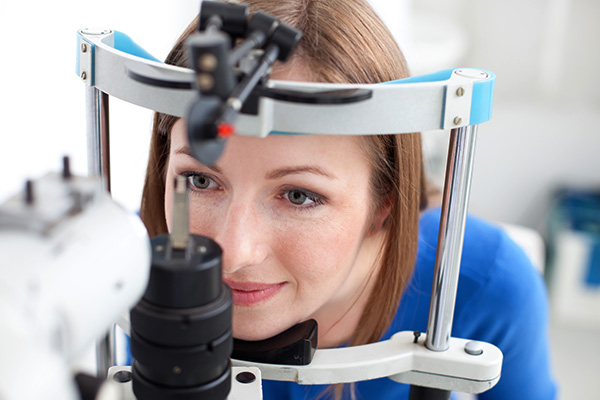
Age-related macular degeneration (AMD) is a leading cause of vision loss in adults over 50, affecting central vision and making daily activities such as reading and driving more difficult. While there is no cure for AMD, taking preventative measures can lower the risk and slow its progression. One of the most important steps in protecting eye health is scheduling regular eye exams, which can detect early signs of the disease and allow for timely intervention.
Understanding Macular Degeneration
Macular degeneration affects the macula, the central part of the retina responsible for detailed vision. There are two types of AMD:
• Dry AMD: The most common form, characterized by the gradual thinning of the macula and the accumulation of drusen (yellow deposits under the retina).
• Wet AMD: A more severe form where abnormal blood vessels grow beneath the retina, leading to rapid vision loss if untreated.
While genetics and aging contribute to the development of AMD, lifestyle changes can significantly reduce the risk.
Schedule Regular Comprehensive Eye Exams
Routine eye exams are one of the most effective ways to detect AMD early. Many people with early-stage macular degeneration experience no symptoms, but an eye doctor can identify warning signs through a dilated eye exam, optical coherence tomography (OCT), and retinal imaging.
We recommend annual comprehensive eye exams for adults, particularly those over 50 or with a family history of AMD. Early detection allows for lifestyle adjustments and potential treatments that may slow the disease’s progression.
Maintain a Healthy Diet for Eye Health
A nutrient-rich diet supports macular health and can reduce the risk of AMD. Foods that are particularly beneficial for eye health include:
• Leafy greens such as spinach, kale, and collard greens, which contain lutein and zeaxanthin.
• Fatty fish like salmon, tuna, and sardines, which are high in omega-3 fatty acids.
• Nuts and seeds, which provide vitamin E to protect against oxidative stress.
• Citrus fruits such as oranges and grapefruits, which are rich in vitamin C.
• Eggs and dairy, which contribute essential proteins and vitamin A.
Quit Smoking and Avoid Secondhand Smoke
Smoking is one of the most significant risk factors for macular degeneration. Studies indicate that smokers are up to four times more likely to develop AMD than non-smokers. Smoking damages the retina by reducing oxygen supply and increasing oxidative stress. Quitting smoking can greatly reduce this risk and improve overall eye health.
Wear UV-Protective Sunglasses
Exposure to ultraviolet (UV) rays from the sun can contribute to macular damage over time. Wearing sunglasses that block 100 percent of UV rays can protect the eyes from harmful radiation and reduce oxidative stress on the macula.
Manage Blood Pressure and Cholesterol Levels
High blood pressure and elevated cholesterol can harm the blood vessels in the eyes, increasing the risk of AMD. Maintaining cardiovascular health through regular checkups, a balanced diet, and physical activity supports overall eye health.
Engage in Regular Exercise
Regular exercise improves blood circulation, ensuring that the retina receives essential oxygen and nutrients. Engaging in at least 30 minutes of moderate exercise, such as walking, cycling, or swimming, five days a week can contribute to better overall health and a lower risk of AMD.
Schedule Your Eye Exam Today
Preventing macular degeneration requires a proactive approach that includes lifestyle changes, proper nutrition, and regular eye care. While age and genetics play a role, making healthy choices can significantly reduce the risk. The most important step is scheduling comprehensive eye exams, which allow for early detection and effective management of AMD.
If you are over 50 or have a family history of AMD, contact InSight EyeCare to schedule an eye exam and learn more about how you can safeguard your vision. Visit our office in Houston, Texas, or call (713) 462-2010 to book an appointment today.





